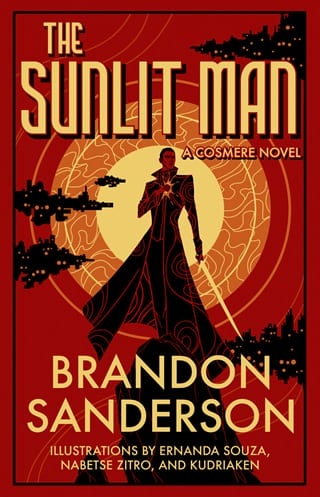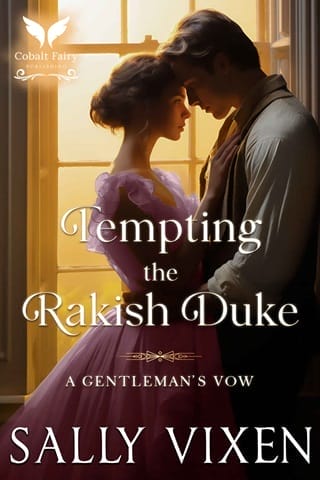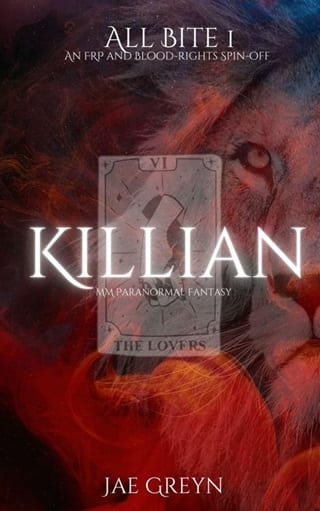Chapter Thirteen
"…if you need a babysitter or not."
Contemplation's smug tone still echoed in Nomad's mind as, three hours later, he and Rebeke burst from the cloud cover back into the light of the rings. Previously faint to him, the illumination now seemed bright as…well, not day. A night with the largest of the moons shining, perhaps.
They were again on Rebeke's quadcycle. As she'd been the one to rescue him, the others seemed happy to make her play nursemaid to him. He wasn't certain what she thought of that. She hadn't said more than a few words to him as she found him a place to rest, then scrounged up some clothing for him. He'd worried they'd have trouble finding something that fit him, but the local seamstresses worked with serious efficiency. Perhaps that's what happened to a society when it was constantly on the run from superheated death.
So he now wore a long brown duster coat with deep pockets, as he preferred. It was the second they'd offered him—the first had looked too much like a uniform. He was still ashamed of how he'd snapped at Rebeke for that. This one was rather nice. It had been a few worlds since he'd been able to obtain something this suited to his tastes. Under it, he wore sturdy trousers and a light shirt.
As they soared out of the darkness on the large hovercycle, a small fleet of ships followed. He and Rebeke, along with other scouts on hovercycles, had come out first to make sure the Cinder King wasn't here. Now that the way was confirmed clear, though, the rest of Beacon had arrived.
Beacon, it turned out, was made up of around a hundred and fifty people—and around thirty ships. Most of those ships, as he'd seen at the larger city—called Union, he'd since learned—resembled bumblebees more than hornets. But all could fly, and fly well.
He was still amazed that entire cities could just disassemble on command. He told himself that he'd seen tens of planets by now and ought to be too jaded to marvel at each novelty. Yet the truth was that each one had something like this—some fascinating quirk that made him want to linger, study, learn.
If he did, of course, the Night Brigade would take him—all to find the next link in the chain leading to their prize. He was certain their treatment of him would be very illuminating. His insides would get to see the light for the first time.
He turned his mind from that to surveying the landscape. He'd noticed the mud earlier, the leftovers of the passing storm in the darkness. The ground was basically grey slush here, no sign of plants or life at all—but that didn't mean it was boring or flat.
Improvised rivers had already carved channels in the mud, eroding soil, creating networks. It all had the feel of an estuary, where river met ocean. Except without the ocean. There were lakes, though. Shallow expanses of water that reflected the rings above in striking, colorful mimicry.
The landscape had a strange variety to it. He'd imagined this entire place like one big salt flat or mud pit, but they passed steep hills and winding valleys with water running down them. Among them stood strange rock formations, wickedly jagged and pocked with holes. They passed a plain with hundreds of them, like sculptures made by a madman.
What do you think of those? the studiously serious knight asks, somewhat confusedly.
"You know," he replied, "Master Wit always told me to avoid using too many adverbs in descriptions."
And how am I to project my emotions, then? he asks even more confusedly.
"Through context. Tone of voice."
Tone of voice, he says flatly, he said flatly. I have exactly one tone, Nomad. Being dead has costs, you know.
"Silence, unfortunately, not being one of them."
The rock formations, Nomad, he says with mounting exasperation. What are they?
"Strange. That's what they are."
Normally he'd have expected those sorts of formations to come from prolonged weathering. But if that were the case, these would have smooth sides, not that craggy, cratered look, like…
Like molten stone, suddenly frozen, he realized, in the process of being ejected from the earth. A volcanic eruption, suddenly hit by cold rain and locked in place. That's what these felt like to him.
"Hey," he said, switching to the local tongue. He waved to Rebeke, who was in the driver's seat to his left. "Those rock formations. Those are made by the sunlight? Superheating the ground, making magma erupt?"
"Best we can guess," she said, shouting over the rush of the wind. "The coming of the Sky Tyrant causes great distress to the land. Everything melts or breaks apart each day, and by the time we pass again, nothing is the same."
"Wait," he said. "Nothing is the same?"
"Nothing," she called. "Though some generalities persist—there are highlands to the south—no individual features remain day to day. Those hills, they weren't here last time. It's all shaped anew. The Chorus tells of our old world. A land of quietude, where the landscape slumbered and didn't transform daily. But that place was also Hell, so…"
"I've been there," he called back. "Food's good, but the ghosts are a huge pain. I'm not surprised your ancestors wanted out."
She gave him a pointed look. "Don't lie."
"Lie?"
"You haven't been to Hell," she shouted.
He shrugged. He'd been through many varieties of hell, though only the planet Threnody was literally called by the term. But who cared if she believed him or not?
That magma thing. How'd you realize it was the case? the knight interjects.
"No erosion on the formations," he explained in Alethi. "Makes sense that this landscape would be subject to extreme forces. It's remarkable. Like a primordial planet, still forming."
What would it be like to live in a place where you could make no maps? A land with no familiar landmarks? Nothing permanent except what you carried with you? Under those circumstances, he'd be looking for a quiet cavern to settle into as well. But it also explained why there weren't many of those.
If the surface got fried every day to the point it cracked and let molten rock come surging out…well, that wasn't conducive to stable, habitable caverns. Again, he doubted that this Refuge could be any sort of cavern.
Beyond that, a part of him whispered that something didn't add up here. That he was missing a piece of the puzzle. Superheated light might make stone flow on the surface, but eruptions? He was no expert, but he thought those were usually caused by the opposite effect. Heat below and coolness above—with a generous helping of tectonic activity to create new pathways for that heat to escape.
Highly Invested light would also make traveling in the system by starship nearly impossible. Yet he had evidence of Scadrians being here. So what was really going on with the mechanics of this planet?
"I assume," he said to Rebeke, "the unstable landscape is why we have to search to find the doorway into the Refuge?"
"Yes," she said, pointing at a nearby group of five ships with round, flat bases. They swept along the ground at a low hover, moving together in a deliberate pattern. "We use prospector ships, which can sense energy sources under the soil. Every now and then, during regular searches, the Cinder King would find the doorway. He became obsessed with it and the stories of the Refuge. That only intensified when he got the key. It came from a body one of his outriders found, a stranger who had died in a mudslide."
Nomad nodded, thoughtful. Those prospectors were large machines for doing something as simple as sensing Investiture, but not everyone was lucky enough to have a Seeker on staff.
"You were his subjects, then?" he said to her over the wind. "The Cinder King? Before you broke away and hid in the darkness?"
"Essentially," she said, slowing the cycle to drink from her canteen. Then she continued without having to shout. "He ‘keeps the law.' Has influence over basically every habitable corridor and has incorporated any cities of significance or size into Union.
"With smaller towns like ours, he'd send a few officials to represent him. Along with some of those Charred of his, of course, ready to enforce their orders. We just lived with it. For years—ever since I can remember, actually—we lived under his thumb. Until he started to change his rhetoric, get more aggressive, claiming that his destiny was to unite all people into one city. So then—"
She glanced to the side as a ship flew past. They'd stowed Elegy, her sister, in there. A kind of improvised prison. Nomad found it wild they didn't have an actual jail.
"Elegy," Rebeke said, "always had such grand dreams. She could persuade anyone of anything, so long as she was passionate about it. I hoped so much that we could…do something for her. When I locked her away earlier, she shouted at me. It was her voice, but there's nothing of her in the eyes. I…" She slumped in her seat, head bowed.
Storms, this girl needed sleep and time to mourn, not another mission. But the sun didn't wait. They were constrained by its timetable. Maybe she'd be able to rest once they opened the doorway…
But of course she wouldn't. Because the doorway wouldn't lead to a refuge. He steeled himself. "The Cinder King," he said. "He'll be looking for you out here, right?"
"He's always looking for us," she replied. "However, Zeal replaced the key he stole with a fake. So with Adonalsium's blessing, the Cinder King does not yet know what we have done. He will have patrols trying to spot us, but only the regular ones. And perchance we will find fortune today—in that he rarely patrols this region."
"Why?"
"Because it is the way that his city, Union, will come anyway, once their harvest is finished," she explained. "Why would we be so foolish as to fly directly into his path? His riders usually search the far reaches of this corridor and those nearby, presuming to find us there, attempting our own harvests."
They fell silent.
"You can't flee to another corridor?" Nomad asked. "You said there are places he can't influence?"
"He influences all," she said, "but there are some places he doesn't care about—because they are inhospitable." She pointed northward. "Travel up that way an hour or so, and it's all his territory until you reach the deadband, where food does not grow. To be exiled there is a death sentence."
She turned, pointing south. "The southern band used to be habitable, but a mountain range has sprung up these last few years. It gets higher and higher. Like I said, while individual features vanish, some large-scale ones persist. We keep hoping this mountain range will melt away, but it hasn't, and so all the people in that corridor had to relocate northward—crowding these corridors. Giving the Cinder King more sway because it is easier to oppress them."
"Wait," Nomad said. "Why is a mountain range a big deal? Just fly over it."
"We can't fly that high," she said. "The ships can't manage it. And it extends far enough that if you try to go around, you inevitably end up getting caught in some valley and dying. So instead we hide in the darkness and dodge his patrols."
Nomad found that curious. Their technology…some things about it baffled him. That wasn't, however, an unusual experience for him. The more he'd traveled, the more he'd learned that technology didn't follow a flat progression. Planets often had extreme knowledge in one area, but ignorance in others. He'd met one society capable of complex mathematics and with a brilliant understanding of architecture—but with no concept of the wheel, as they lived in a dense jungle, where developing it hadn't made as much sense as it did in places with a lot of flat land and straight roads.
So, the knight muses, they lived under the Cinder King. That—admittedly—sounds bad. But could it truly be worse than the rest of life on this planet? Was his rule so horrible that going off to live in pure darkness was better?
That depended. In Nomad's experience, it wasn't when life was utterly terrible that people rebelled. It instead happened when life improved to the point that people had time to think, time to wonder. The capacity to imagine.
So maybe things here had recently progressed enough to make people wonder if they needed a dictator or not.
"The Cinder King," Nomad said. "He taxed you? How badly?"
"Badly," she said softly. "The lottery happened once a rotation."
Lottery?
Well, there was a word that varied widely by context. Remembering his experience on Union, he braced himself for the worst. "A…lottery of people?"
She nodded. "What else would it be?"
"And what did he do with them?"
She frowned, studying him. Then she narrowed her eyes. "You…don't know?"
He shook his head.
"It's true?" she whispered. "There's a place where they don't use sunhearts?"
"The power sources?" he said, rapping his knuckles on the cycle's housing. "I mean, everyone I've known uses power of one sort or another, but I've never seen these ones. Where do you get them? Is it…" He trailed off.
Sunhearts.
Lottery.
"People?" he asked. "These power sources used to be people?"
"This one here," she said, resting her hand on the housing, "was my mother. Two weeks ago. We left her for the sun, then recovered her sunheart on the next rotation. Her body vaporized by the heat, her soul condensed into this stone."
 Fullepub
Fullepub 



